Our Researchers
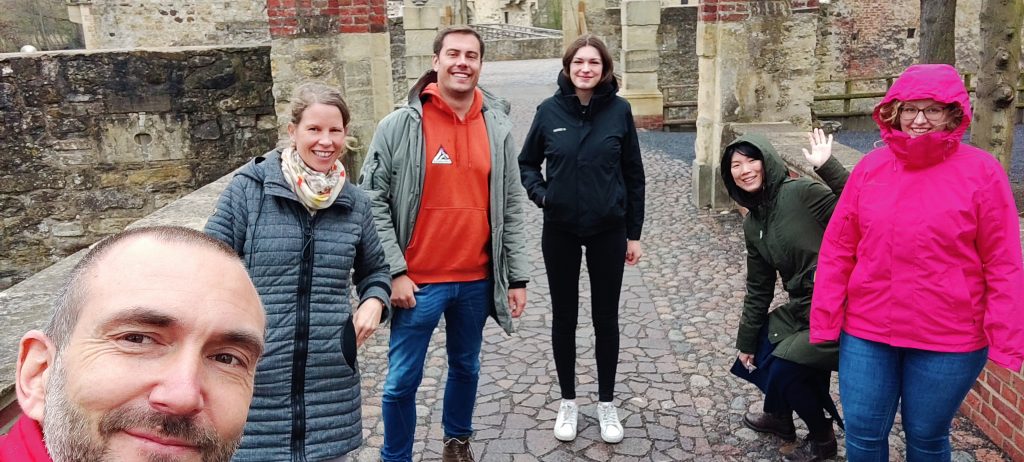
That is us in Lüdinghausen, dropping by Vishering Castle after having visited St.-Antonius-Gymnasium.
Armin, Katrin, Kilian, Helene, Leona, and Bettina, who was nice enough to chip in for Isa, who could not be with us.

Dr. Leona Chandra Kruse is an assistant professor at the Chair of Information Systems and Innovation. She has a multidisciplinary background, having studied Psychology, Entrepreneurship, and Information Systems. Her research interests lie at the intersection of these three areas, such as multisensory digital experience, human-centered AI-based technologies, and design knowledge management. Leona is experienced in studying the use and impact of AI, as demonstrated by her recent publication on AI-based stress mitigation mobile applications. Leona also has experience working with children and teenagers, including those with special challenges (e.g., autistic spectrum disorder). During her Psychology study, she was active as the board secretary at “Musik Remaja Indonesia” (Jeunesses Musicales Indonésie), a not-for-profit organisation that promotes youth and children engagement through classical music. The most memorable project for her is “Pelangiku”, a reinterpretation of traditional Indonesian nursery songs. The songs were rearranged and their new arrangement was played by a youth orchestra from a local music school. Each song in the album was accompanied by a story that is especially composed for promoting emotional intelligence.
Dr. Isabella Seeber is Associate Professor of Information Systems at the Grenoble Ecole de Management (GEM). Her research focuses on the positive and negative consequences of conversational agents (e.g., chatbot or social robots). For example, in one past field study involving pupils in a business high school revealed that their learning achievement is more driven by their positive expectation towards the technology than the frequency or type of actual usage. Since her start at GEM she leads a project in the research laboratory GEMLabs to develop a digital platform to deliver conversational agents experiences in immersive physical rooms. In the past, she has regularly participated in events to familiarize high school pupils with her research using experimental methods.

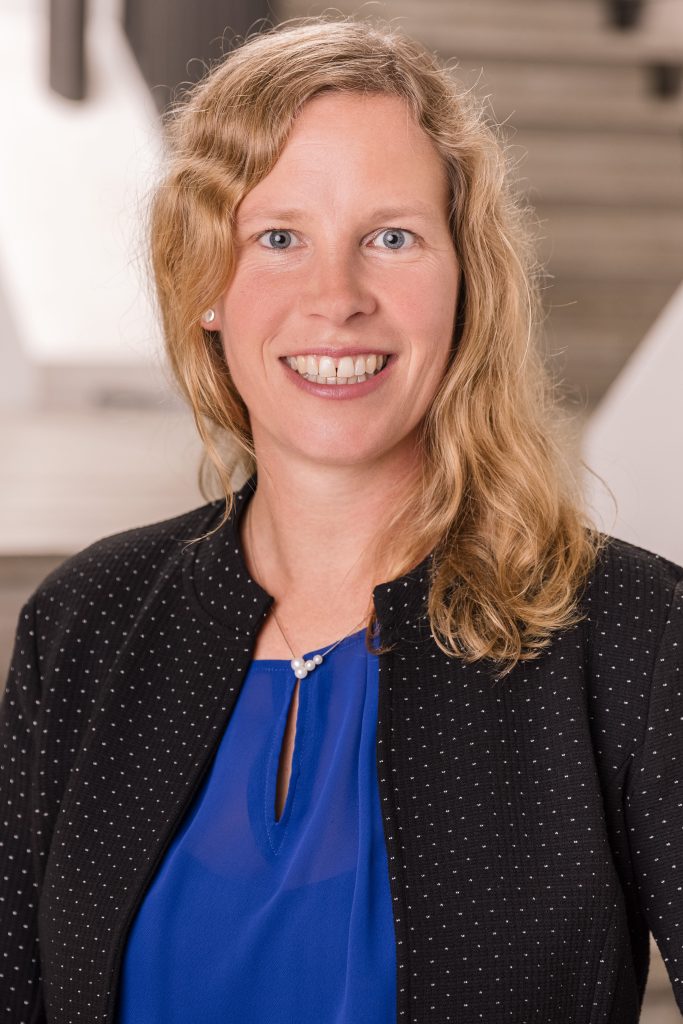
Dr. Katrin Bergener is Senior Lecturer at the Department of Information Systems and Managing Director of the WWU Center for Europe. She holds a PhD in Information Systems and has a profound interest in IS education as well as in attracting more female students for IS studies. To achieve this goal, Katrin led a project for 3 years that was about exactly that, i.e. giving girls (age 12-15) insights into the diversity and range of IS jobs (Project title: Digital Me, funded by the German Federal Ministry of Education and Research). During the project, she also visited schools and established a network that she can now make use of for this planned project. Together with Armin, Katrin teaches the IS introductory course to first-term students, where they, among other topics, provide first information about the complex research area of Artificial Intelligence.
Dr. Armin Stein is Senior Lecturer at the Department of Information Systems and Managing Director of the European Research Center for Information Systems (ERCIS). Teaching is not only obligatory part of his job, but also a research interest, together with Diversity in the Information Systems discipline. In this context, Armin worked in several EU-funded projects, mainly aiming at improving the Higher Education context in the IS field. Together with Katrin, Armin also teaches the IS introductory course to first-term students. Armin also worked as sailing instructor for kids between six and twelve, as well as for teens between twelve and 16 years. In his free time, Armin likes playing soccer and teaches coding to kids between 10 and 14 in the context of CoderDojo (https://coderdojo.ms) and likes to play around with the Machine Learning packages of Python.
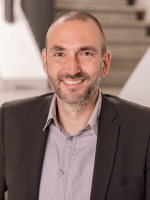
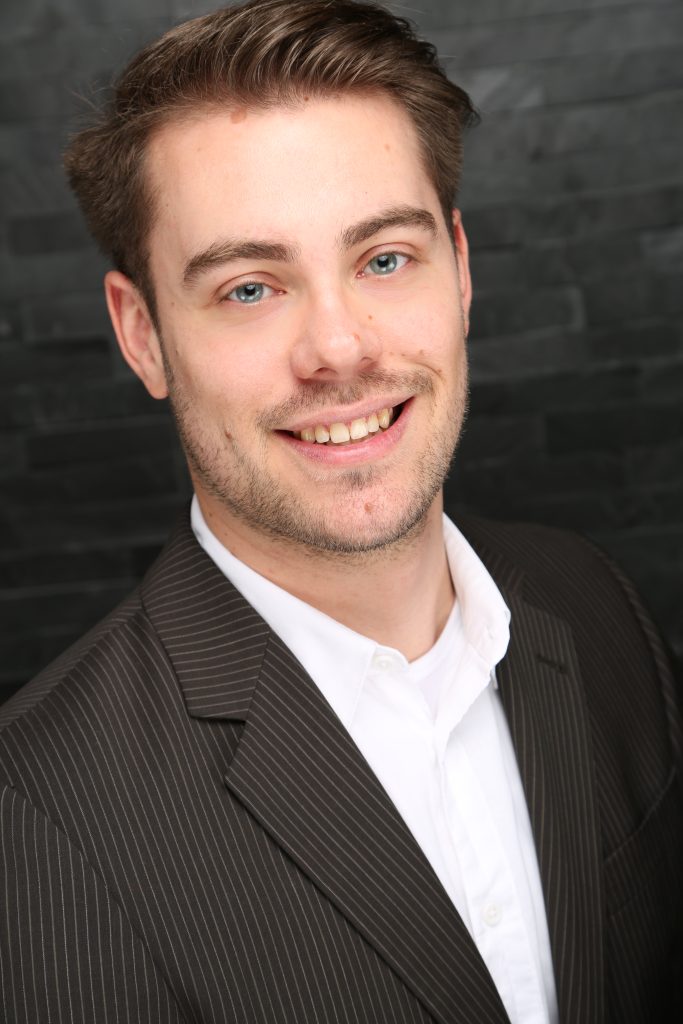
Kilian Müller is a PhD Student at the Chair of Information Systems and Information Management at the University of Münster and the European Research Center for Information Systems (ERCIS). Apart from his teaching, in the areas of data management as well as production, planning, and control, he has worked on different EU-funded projects. These projects contain the MODERAT!-project (http://www.moderat.eu), aiming at the (semi-)automated moderation of hate speech in comment sections, and the GIGA-Gebärdensprache-project, to create a first user-friendly and powerful mobile sign language app.
Our Research Institutions
All of the researchers have been well-connected even before the project. The University of Liechtenstein and the University of Münster are both members of the ERCIS Network and share a long history of successful EU projects. The Grenoble Ecole Management is a perfect addition to the team.

University of Liechtenstein
… is a leading university in the international Lake Constance region. It is a place for personal development, interaction as well as critical and creative thought, and a hub of innovation for shaping the future. It has an excellent reputation and an outstanding network of contacts. Education and research meet the highest international standards. The University of Liechtenstein is defined by entrepreneurial leadership applied to all levels and areas.
The University of Liechtenstein prepares its approximately 800 students to take on leading roles in government and society, politics and business, culture and academia. The university’s academic focus is divided into the two areas of business economics and architecture and planning. The university’s education and knowledge transfer offerings are geared to societal needs and business demands.
The Institute of Information Systems at the University of Liechtenstein is one of the leading research institutes on Information Systems (IS) and Innovation, Business Process Management, Data Science, and Cybersecurity. It has a proven track record of successful innovative projects in harnessing digital technologies in teaching, learning, and international collaboration. The Chair of IS and Innovation aims to understand and design the supporting roles of digital technologies in creating economic and societal impacts. Its ongoing research program includes data-driven innovation, cyberphysical innovation, humanistic system design, and multisensory digital experience.
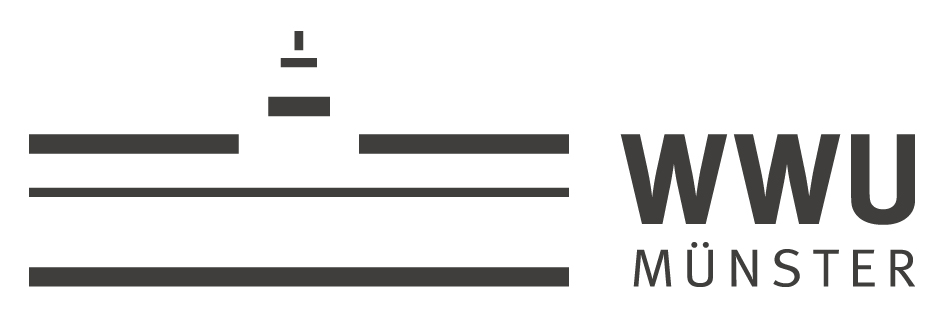
University of Münster
… is one of the largest universities in Germany with a rich and time-honoured tradition. It enjoys an outstanding reputation in the region and far beyond. Fifteen faculties with 120 degree programmes and some 30 research centres comprise the institutional backbone of the University. Some 45,700 students and 5,300 academics appreciate the University’s excellent research opportunities, high-quality teaching, promotion of junior researchers, and the advantages of living in the city of Münster. As a research-oriented university, the WWU has made pioneering progress in numerous areas. Two Excellence Clusters, eight collaborative research centres (SFB), several research training groups and 27 research centres collectively advance inter- and transdisciplinary collaborative research and individual disciplinary research projects. The University of Münster is well-known for its large and distinguished faculties, such as Law and Medicine, but also for its so-called exotic subjects like Scandinavian Studies. The diverse and research-oriented course offerings attract several thousand students to Münster each year.
The Department of Information Systems (IS) at the University of Münster is considered to be one of the largest and most respectable IS departments in Germany. Periodic national rankings attest to the excellent reputation of the Department. The Department was founded in 1990 as part of the Münster School of Business and Economics (MSBE). More than 175 people work at the Department, including eight professors, about 75 staff members and 100 student assistants.
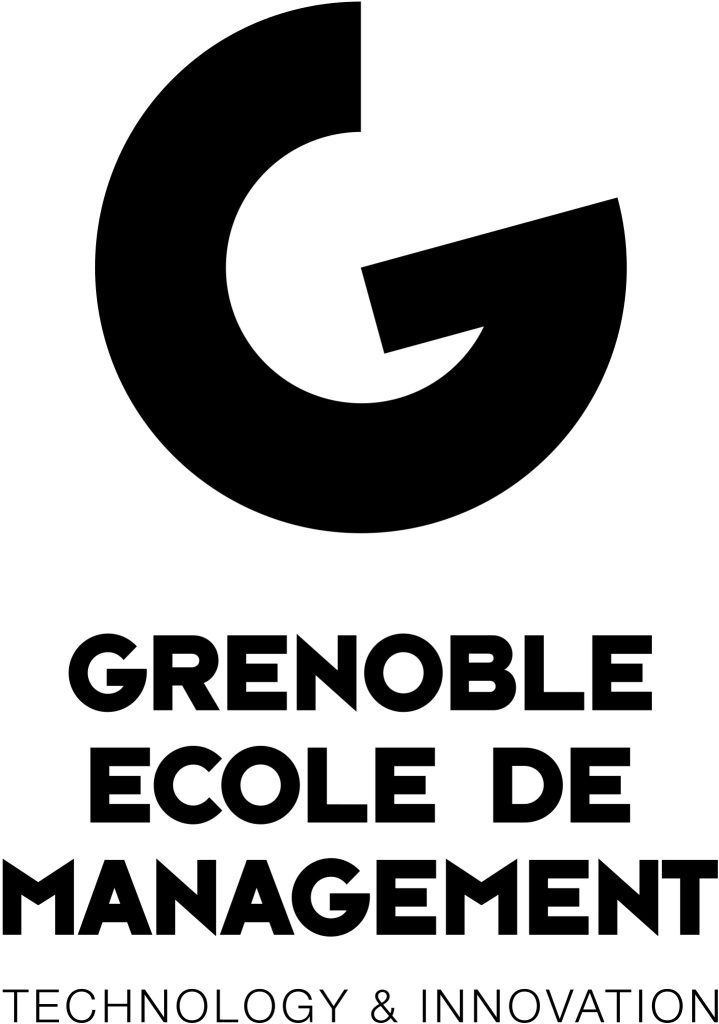
Grenoble Ecole de Management (GEM)
… is a Research and Higher Education institution of the Chamber of Commerce and Industry of Grenoble. GEM is one of few fully accredited (EQUIS, AACSB, and AMBA) business schools worldwide. At the French level, GEM is a member of the Conférence des Grandes Ecoles and it is regularly ranked as the 6th business School in France. Over the last three decades, GEM has developed a unique expertise on management of technology and innovation in particular in the analysis of emerging fields (e.g. energy management, health, IT, biotech and nanotechnology) as well as new business models. Its main fields of expertise comprise deliberate and emergent strategies of innovation, information and communication technologies (challenges and impact of business practices), new product development and marketing of innovative products and services, sustainable innovation. In the past, GEM has been coordinating multiple national and European projects involving teams from multiple disciplines.
With more than seven thousand students, GEM main campus is located in Grenoble. GEM has a large campus also in Paris, where several of its programs are delivered.
GEM has recently opened the GEM Labs, a building dedicated to new pedagogical tools including a design thinking hall and the playground, a dedicated unit for serious game development. GEM Labs is based on innovation through experimentation. A true Business Lab, decision-makers and their teams come to experiment with new ways of seeing and doing business, developing their activities and creating value. Here, thanks to immersive platforms, new solutions can be tested in almost real-life situations. Experimentation platforms are at the heart of GEM Labs – enabling immersive learning experiences, inspiring managers and leaders in the face of technological transitions, actively committing to sustainable and responsible innovation. The platforms include a connected shop, connected street and home spaces, and my Market Lab. Here we simulate the consumer journey – dissecting purchasing behavior, consumer risk-taking, and the act of taking action. We explore the challenges between technology and ethics, the importance of intellectual property, and more. The TIM Lab is the platform dedicated to project teams and design thinking. The teams meet here to conduct an innovative project. Thanks to design thinking, everyone learns to think differently, to appropriate the technologies and make them an asset to build on. Design thinking is a great asset for co-developing with project teams and scripting the paths of project leaders.